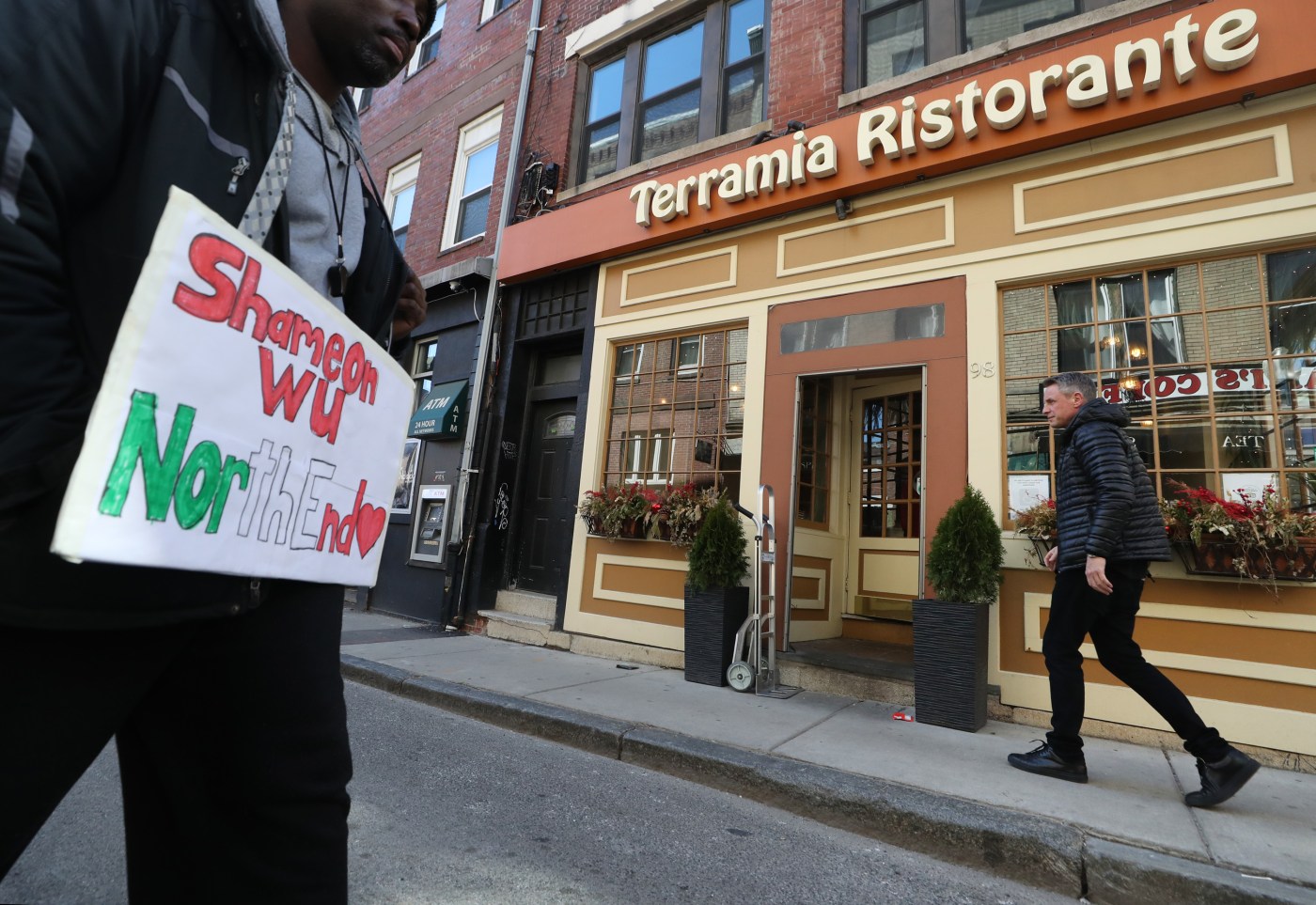
North End restaurateurs file new lawsuit against city for ‘discriminatory treatment’ over outdoor dining
A new year, and the fight over outdoor dining between North End restaurant owners and the city is back on the menu.
The North End Chamber of Commerce and restaurateurs who own 21 North End establishments filed a lawsuit against the city in federal court this week, continuing to argue that officials showed “unequal, unfair, and discriminatory treatment” against them the past two outdoor dining seasons.
In 2022, officials forced restaurateurs to pay a $7,500 fee for outdoor dining operations, while in 2023, the city banned the option entirely. The North End was the only neighborhood that faced the restrictions.
Restaurateurs now demand the city pay for the losses their businesses sustained due to the fees and ban, and declare its actions the past two years were “arbitrary, capricious, and contrary to law.”
“The North End Italian restaurant owners bring this action against their beloved City of Boston — which is their home — with a heavy heart because they are a vital part of the ethnic fabric that makes Boston the remarkable, diverse, multicultural city that it is today,” the lawsuit states.
“But the plaintiffs believe that over the past two years, the City has backed them into a corner, leaving them with no choice but to resort to the judicial system to achieve a fair and just resolution of a controversy that impacts their livelihood, their dignity, and their values.”
Mayor Michelle Wu and other officials have said the decision to impose the fees was aimed at reducing quality of life burdens to residents, such as the increased noise, trash, traffic and loss of parking that came with outdoor dining there.
The nearly summer-long shutdown of the Sumner Tunnel and North Washington Street bridge project further triggered last year’s ban.
“The charges in this lawsuit are once again without merit as this group attempts to relitigate a past issue that was dismissed,” a city spokesperson told the Herald on Friday. “The City has full jurisdiction over public streets and will continue to make decisions that work for our residents and support their quality of life.
Last year’s ban led to four restaurateurs amending a lawsuit they filed against the city in 2022, alleging Wu made them pay thousands to provide outdoor dining last year because of her bias against “white, Italian men.”
By last June, the restaurateurs had dropped the suit.
In the new suit, restaurateurs described the “harsh participation fees” – $7,500 to entertain guests outdoors and $480 for parking – as “an unlawful tax.” They also alleged Wu failed to live up to a promise that the fees were “meant to address the particular impacts of this program.”
Officials used some of the funds from the fees to purchase an electric street sweeper for $552,000 in the summer of 2022 to push the mayor’s Green New Deal which calls for the electrification of the city’s vehicle fleet, the suit states.
Leading up to last year’s decision to shut down outdoor dining, restaurateurs allege the city “employed a highly irregular process to limit the Italian restaurants from meaningfully participating in discussions leading to the ban.”
Instead, officials “favored” treatment and access to the North End/Waterfront Residents Association, a politically powerful community organization that had openly opposed the North End restaurants and pressed for the ban,” the suit states.
The decision to ban outdoor dining came in during a meeting last February, leaving restaurateurs “caught off-guard and astonished.” In the middle of that meeting, the city had issued a release with the news behind the ban and guidance for the 22 other neighborhoods.
Restaurateurs say the ban has forced them to lay off employees and “incur unwarranted costs and to lose considerable revenue and income.”
“The City’s policies, which are contrary to law, have tarnished its image, its culture, and its sense of citywide community by discriminating against Italian American citizens who own and operate most of the North End’s restaurants,” the suit states. “The reputational damage to the City is both immense and ironic, as the City’s policies clash with a host of anti-discrimination policies and laws on its books.”
Restaurateurs also believe the closure of the Sumner Tunnel and the construction on the North Washington Street bridge did not put a strain on traffic in the neighborhood.
They are demanding a preliminary and permanent injunction requiring the city to process and accept outdoor dining applications in the same manner as those submitted by restaurants in other parts of the city.
A city spokesperson told the Herald that officials are actively seeking “opportunities to support outdoor dining wherever compatible with accessibility and residential quality of life,” and a task force is exploring longer-term options in the North End.


